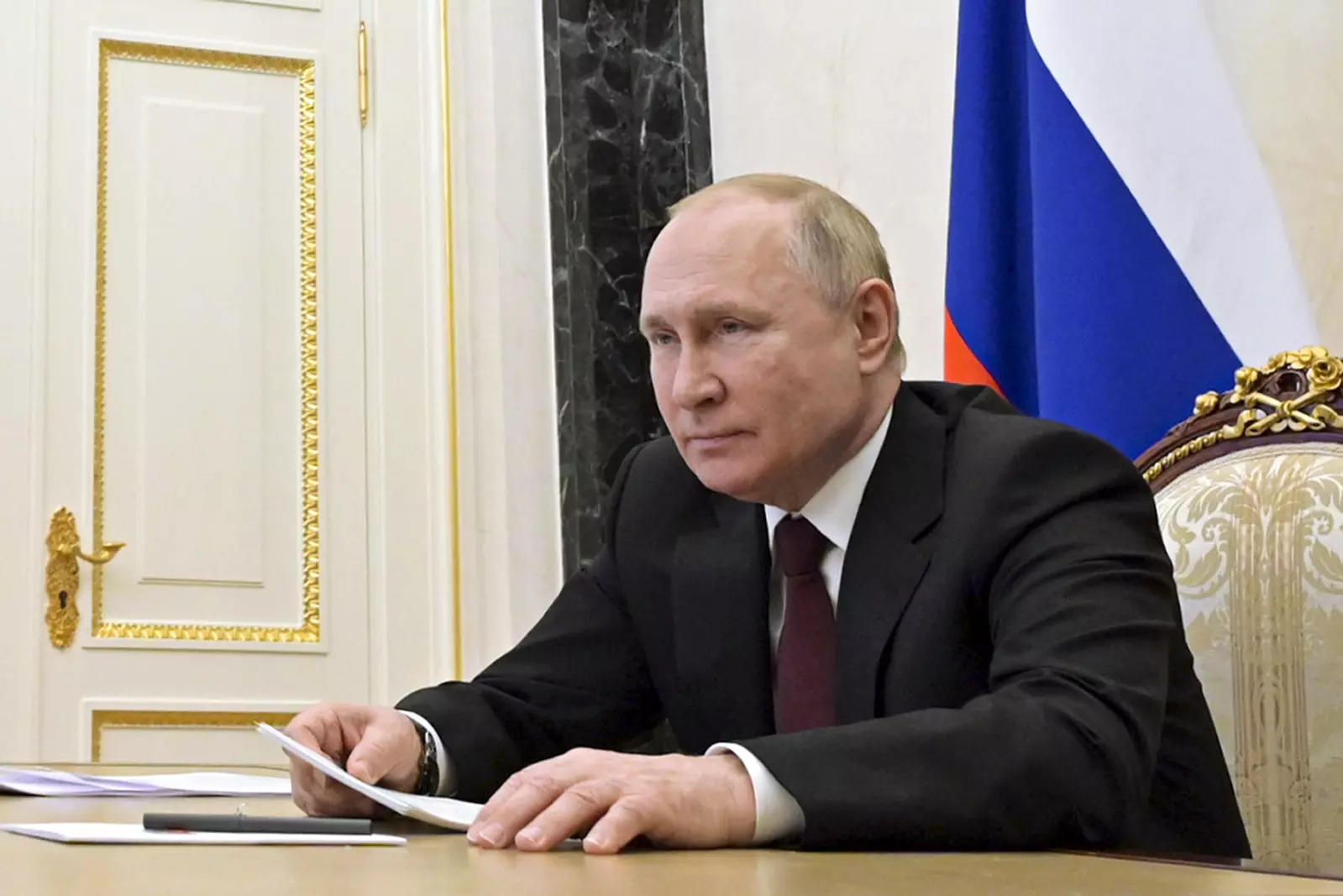Description
Russian President Vladimir Putin ordered a 36-hour ceasefire in Ukraine over Orthodox Christmas on January 5, a move that war-ravaged Kiev quickly labeled "hypocrisy". Mr Putin's directive to his troops was announced days after Moscow suffered its deadliest reported loss of the invasion, and after 11 months of relentless combat.

Both nations celebrate Orthodox Christmas and the Russian leader's order came after a ceasefire was pushed for by Turkish President Recep Tayyip Erdogan and Russian spiritual leader Patriarch Kirill, a staunch supporter of Putin. "Taking into account the appeal of His Holiness Patriarch Kirill, I direct the Minister of Defense of the Russian Federation to implement a ceasefire along the entire line of contact between the parties in Ukraine," a statement from the Kremlin.
It will run from noon (2:30 p.m. IST) on Jan. 6 to midnight on Jan. 7 (2:30 a.m. IST on Jan. 8), the Kremlin said. Kiev attacked the announcement, calling it "hypocrisy". Russia “must leave the occupied territories – only then will it have a ‘temporary ceasefire’. Keep hypocrisy to yourself," Ukrainian presidential adviser Mykhailo Podolyak wrote on Twitter. Russia is occupying parts of eastern and southern Ukraine after 11 months of fighting, but Kiev has recaptured parts of its territory, claiming a New Year's strike this week that killed dozens of Moscow troops.
Earlier in the day, Mr. Erdogan, who has good relations with Moscow, said during a telephone conversation between the two leaders at Mr. Putin urged to declare a "unilateral" ceasefire, the Turkish leader's office said. The Kremlin reported that Mr Putin had told Mr Erdogan he was open to dialogue if Kiev accepted the "new territorial reality" on the ground. Following votes internationally labeled farce, Russia annexed the regions of Donetsk, Lugansk, Zaporizhzhia and Kherson, despite not fully controlling them.
Mr Erdogan has used his good relations with both sides to try to bring Mr Putin and his Ukrainian counterpart Volodymyr Zelensky to Turkey for a peace summit. Turkey hosted two early rounds of peace talks and helped broker a UN-backed deal to restore Ukrainian grain supplies across the Black Sea. But the Kremlin immediately responded to the call of Russian spiritual leader Patriarch Kirill. The 76-year-old Orthodox leader, an outspoken supporter of Putin, has given his blessing to Russian troops fighting in Ukraine and has been heavily anti-Western and anti-Kiev sermons throughout the conflict.
Patriarch Kirill made his appeal "so that Orthodox people can attend services on Christmas Eve and on the day of Christ's birth," he said on the church's official website on Jan. 5. The Kremlin's decision to send troops to Ukraine in February 2022 resulted in many clerics who had remained loyal to the Patriarch turning away from Moscow. In May, the Moscow-backed branch of the Ukrainian Orthodox Church cut ties with Russia, citing its lack of condemnation of the fighting.
The ceasefire order came a day after Moscow increased its reported toll of the worst reported loss from a Ukrainian attack to 89 dead. Ukraine's military strategic communications unit has said nearly 400 Russian soldiers have been killed in the eastern Ukraine town of Makiivka, held by pro-Russian forces. Even Russian commentators have said the death toll could be much higher than the Kremlin's figures. The deadly Makiivka attack came after months of discontent in Russia towards the military following a series of battlefield defeats and a hugely unpopular mobilization campaign.
As Moscow grapples with the aftermath of the strike, the head of the Wagner mercenary group said the first group of Russian prisoners who had been offered amnesty in exchange for fighting in Ukraine had been released. Wagner boss Yevgeny Prigozhin appeared in a video released on January 5 speaking to a gathering of men - some injured and whose faces were blurred. Wagner fighters have been at the forefront of Moscow's offensive and their presence has also been reported in conflict zones, including Syria, Libya, Mali and the Central African Republic.
